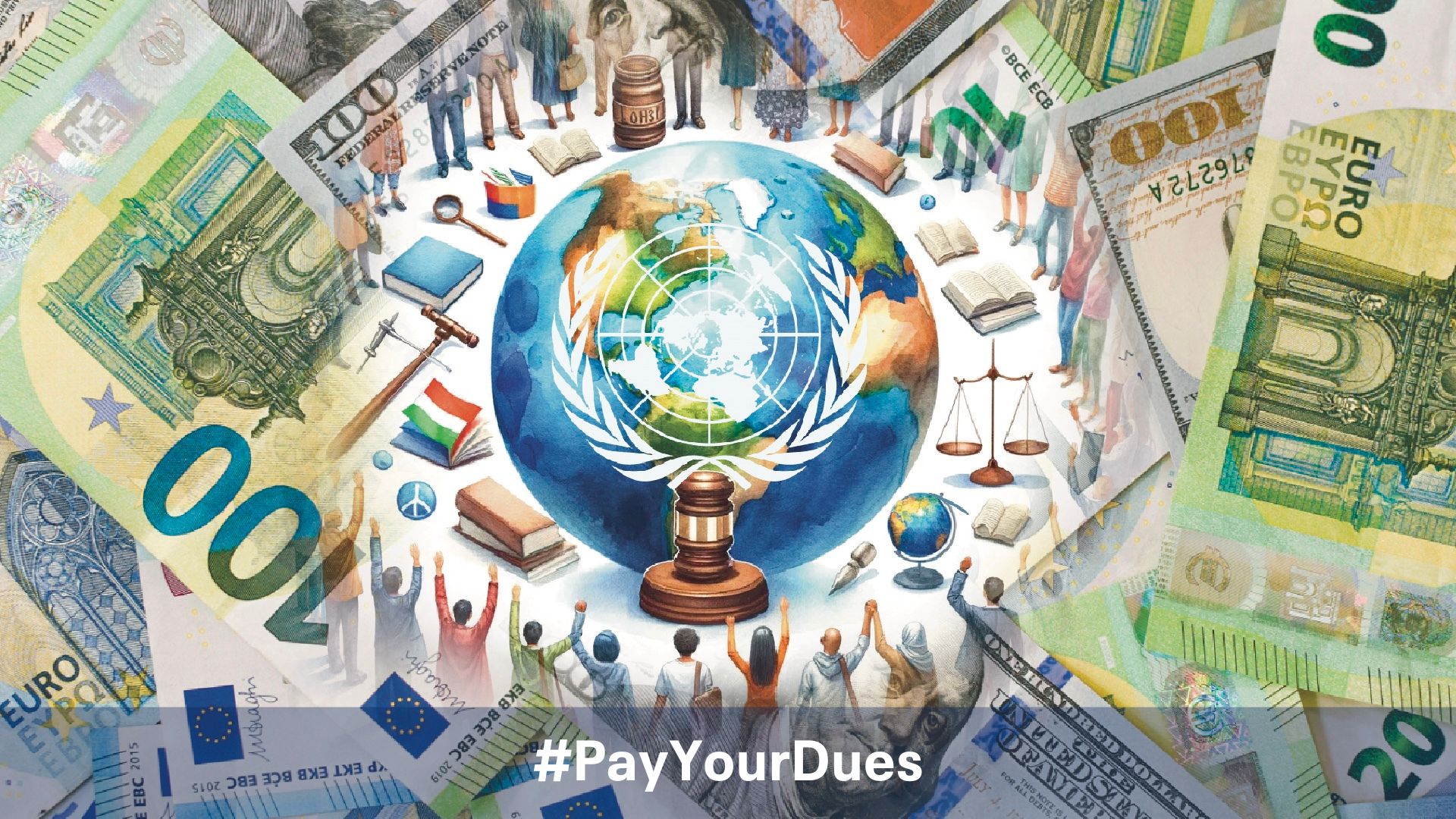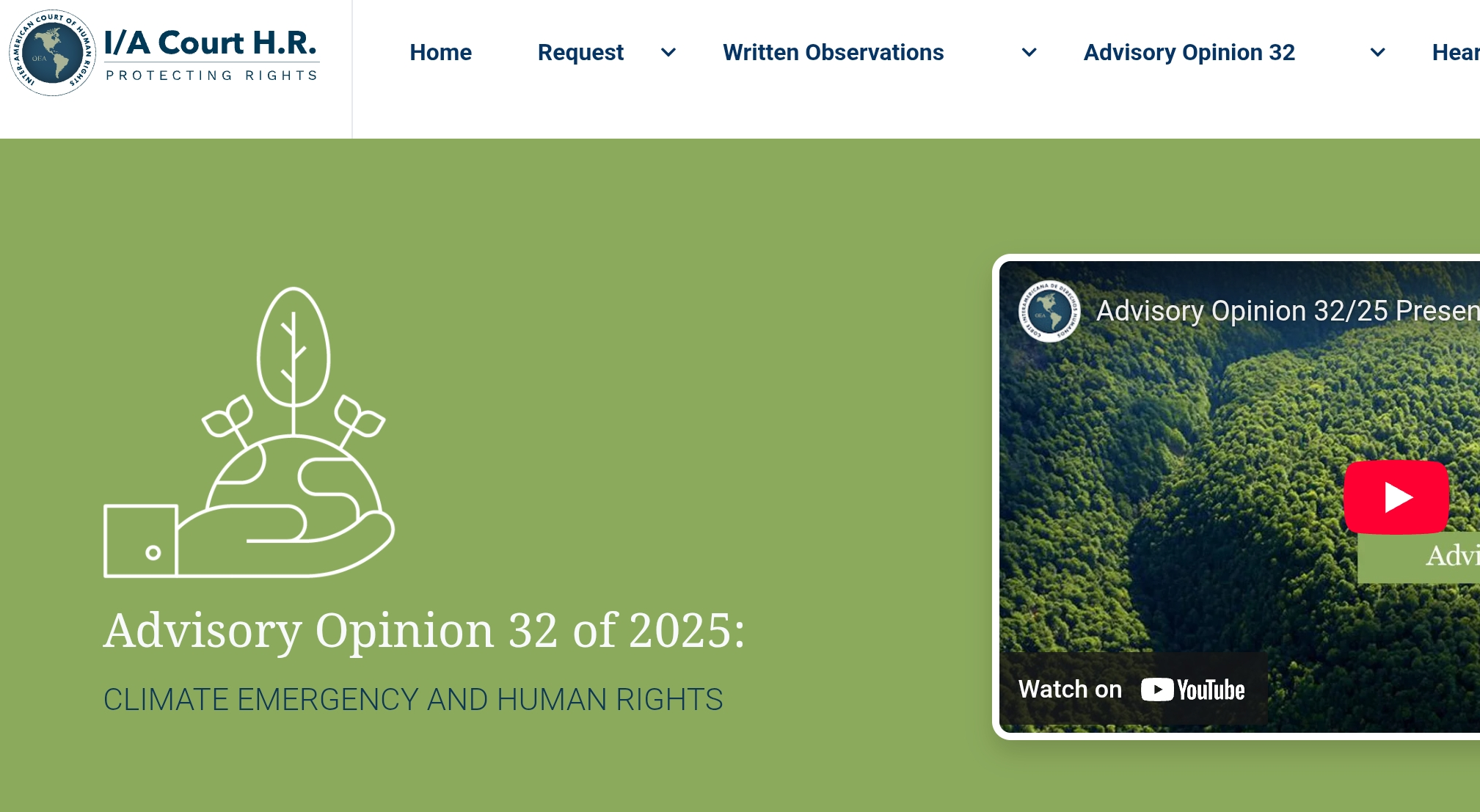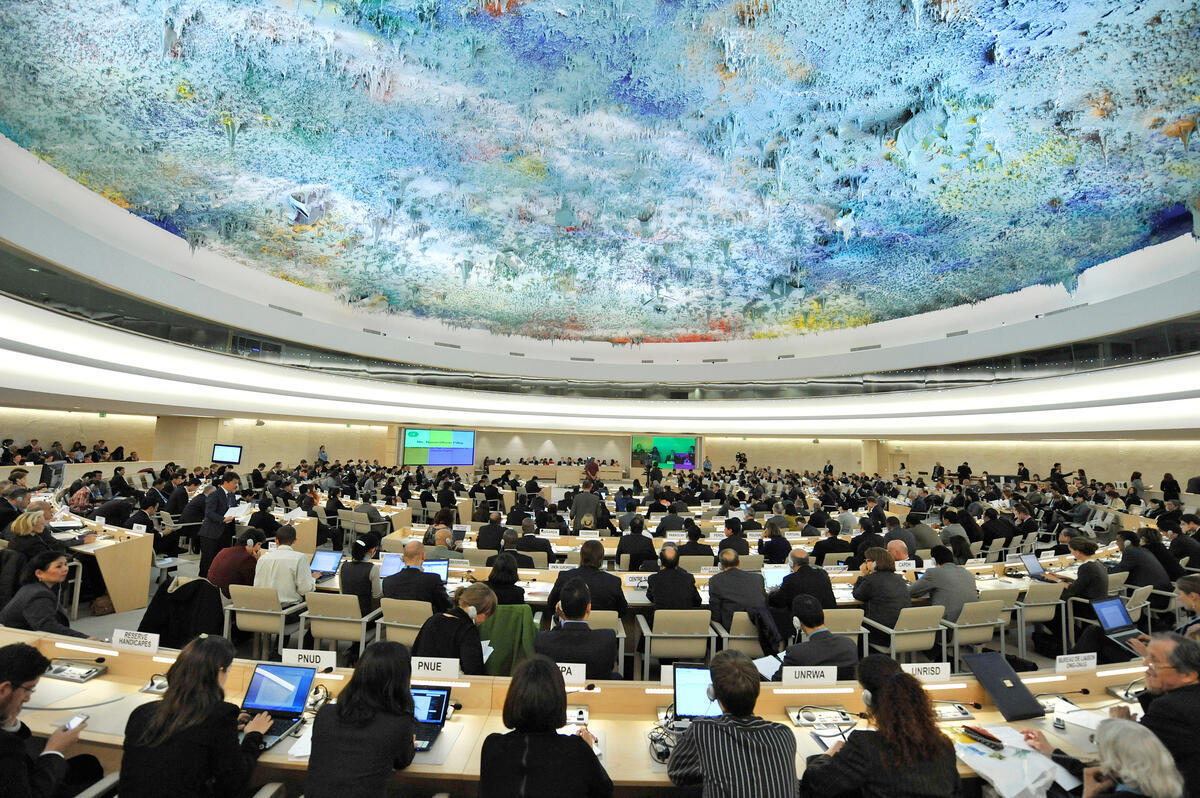The failure of States to pay their membership dues to the United Nations (UN) in full and on time is causing a financial liquidity crisis for the organisation. According to the UN Secretary-General, the UN faced the highest level of arrears in its history at the end of 2023, the impacts of which are being felt by victims and survivors of human rights violations and abuses. As of 15 April 2024, only 100 UN member States have paid their dues in full. Human rights groups call on all member States to pay their contributions in line with their legal obligations under the UN Charter (article 17, paragraph 2)
The UN as a whole, and the Human Rights Council and the Office of the High Commissioner for Human Rights specifically, have deliberated various measures and proposals to conserve cash, including through freezing the recruitment of staff to mechanisms created by States, and postponements and partial fulfilment of key mandated activities. We remind States that what is being traded off are priorities brought to the UN by human rights defenders and affected populations and agreed to by governments themselves. On the global level, as repeatedly highlighted by the UN Secretary-General, the international human rights system is indispensable to ensure stability by promoting conflict prevention and sustainable development.
The cuts to Special Procedures’ activities, including limitations to the number of country visits and the cancellation of the annual meeting, severely restrict the possibilities for rights holders to directly engage with what has typically been one of the UN’s most accessible mechanisms. It also reduces mandate holders’ access to situations on the ground and the engagement with authorities at the domestic level for positive human rights change and to promote the rights of victims and rights holders.
Decisions forced by the liquidity crisis, among them the announcement of some treaty bodies to cancel pre-sessional working groups and threats to further cancellations including of sessions, are of great concern. Not only would crucial assessments of compliance with the treaties be put on hold, but it would also lead to increased backlogs of both state-party reports for review and exacerbate existing backlogs of individual communications. Attention also needs to be paid to ensuring increased and continuous funding for accessibility for persons with disabilities to allow for their effective participation in all UN treaty bodies.
Investigative mechanisms created to respond to mass atrocities in places including Sudan, Myanmar, Syria, Ukraine, Iran and Israel/OPT, particularly in supporting criminal prosecutions of perpetrators, are already or will be severely hindered in their ability to collect witness and victim testimonies and first-hand accounts through cuts in travel budgets as well as staffing. Many such mechanisms were created following sustained calls for accountability from affected communities themselves, and barriers to their functioning will not only make accountability more remote but will damage the UN’s credibility in addressing such atrocities.
There are real risks that the cash flow crisis will be instrumentalised to impose unnecessary restrictions, particularly on civil society access and participation at the UN. Online and hybrid modalities for participation do not require heavy financial investments, and the gains are meaningful, especially considering factors such as environmental impact, costs of travel, visa restrictions, accessibility for persons with disabilities and the increased risks of reprisals against individuals engaging with the UN.
Finally, the human rights pillar of the UN remains significantly underfunded, receiving only 4% of the regular UN budget. By exacerbating these deficiencies, the UN Member States are sending a clear message that human rights and their implementation are optional and not inalienable. Resolving the cash flow problems this year will not meaningfully or sustainably address the financial challenges of the system’s human rights bodies, mechanisms and processes that are so important to rights holders.
We call on all States to:
- Pay their dues to the UN in full and without delay, both now and in future years;
- In their deliberations on cost-cutting measures, ensure that all stakeholders are consulted and that a victim-centred approach is taken when considering prioritisation for funding; and
- Strengthen the human rights pillar of the UN by substantially increasing its regular budget.
We invite OHCHR to regularly provide civil society with a detailed, accurate and comprehensive picture of the crisis and its impact, as the situation evolves.
Signatories (updated on a rolling basis)*:
- 4Métrica
- AbibiNsroma Foundation
- Action Canada for Sexual Health and Rights
- ActionAid International
- African Centre for Democracy and Human Rights Studies
- Albinism Society of Eswatini (ASESWA)
- American Civil Liberties Union (ACLU)
- Amnesty International
- Anti-Slavery International
- Ararteko-Ombudsman of the Basque Country
- Asian Forum for Human Rights and Development (FORUM-ASIA)
- Asociación Aquarius Supervivientes
- Asociación La Ruta del Clima
- Association du Développement et de la Promotion du Développement et de la Promotion de Droits de l’Homme
- Association for the Prevention of Torture
- AsyLex
- Belgian children’s rights coalitions (Coordination des ONG pour les droits de l’enfant & Kinderrechtencoalitie)
- BIO VISION AFRICA (BiVA)
- Cairo Institute for Human Rights Studies (CIHRS)
- CAN Latin America (CANLA)
- Caribbean Association for Youth Development (CAYD)
- Center for International Environmental Law (CIEL)
- Center for Reproductive Rights
- Center for the Human Rights of Children, Loyola University Chicago
- Centre for Citizens Conserving Environment & Management (CECIC)
- Centre for Civil and Political Rights (CCPR-Centre)
- Centre for Human Rights and Development (CHRD), Mongolia
- Centre interdisciplinaire des droits de l’enfant – UCLouvain
- Centro de Estudios Legales y Sociales (CELS)
- Centro de Promoción y Defensa de los Derechos Sexuales y Reproductivos – Promsex
- Child Rights Connect
- Child Rights International Network (CRIN)
- Children’s Rights Alliance for England, part of Just for Kids Law
- CHOICE for youth and sexuality
- CIVICUS
- CNCD-11.11.11 (Belgium)
- Colectivo de Derechos de Infancia y Adolescencia de Argentina
- Collective Campaign for Peace (COCAP)
- Comité/Club UNESCO Universitaire pour la Lutte Contre la Drogue et autres pandémies (CLUCOD)
- Commonwealth Human Rights Initiative (CHRI)
- Conectas Direitos Humanos
- Conenfoque
- Convention against Enforced Disappearances Initiative (CEDI)
- Defence for Children International
- Endorois Welfare Council (EWC)
- Equality Now
- European Network on Statelessness
- FIAN International
- Franciscans International
- Fundación Cónclave Investigativo de las Ciencias Jurídicas Y Sociales (CIJYS)
- Geneva Human Rights Platform
- Global Centre for the Responsibility to Protect
- Global Detention Project
- Global Initiative for Economic, Social and Cultural Rights
- Greek Helsinki Monitor
- Green Development Advocates (GDA)
- Human Rights Defenders Network- Sierra Leone
- Human Rights in China
- Human Rights Watch
- Humanists International
- Institute on Statelessness and Inclusion
- International Commission of Jurists
- International Disability Alliance
- International Federation for Human Rights (FIDH)
- International Institute on Race, Equality and Human Rights
- International Play Association – Canada
- International Rehabilitation Council for Torture Victims
- International Service for Human Rights
- International Women’s Rights Action Watch Asia Pacific (IWRAW AP)
- Irídia – Center for the Defence of Human Rights
- Just Fair
- Justiça Global
- Kindernothilfe e.V.
- Legal Literacy – Nepal
- LGBT CENTRE MONGOLIA
- MENA Rights Group
- Minority Rights Group – Greece
- Namibia Diverse Women’s Association (NDWA)
- NGO for Children Confederation
- Omega Research Foundation
- Oyu Tolgoi Watch
- Plan International
- Privacy International
- PROMSEX, Centro de Promoción y Defensa de los Derechos Sexuales y Reproductivos
- Psychological Responsiveness NGO, Mongolia
- Rede Nacional de Mulheres Negras no Combate á Violência
- Réseau des ONG ACTIVES pour le Contrôle du Tabac en Côte d’Ivoire (ROCTA-CI)
- Réseau des Organisations de la Société Civile pour l’Observation et le Suivi des Elections en Guinée – ROSE
- Rivers without Boundaries Coalition
- Save the Children
- Sayanaa Wellbeing Association
- Sexual Rights Initiative
- Sounds of the Silenced
- Southern Africa Region Climate Action Network
- Tanzania Child Rights Forum
- TB-Net
- Terre des Hommes International Federation
- The Oil Refinery Residents Association
- Transbantu Association Zambia
- UCLouvain
- UNamur et UCLouvain Saint-Louis Brussels
- Unen khatamj NGO
- Universal Rights Group
- West African Human Rights Defenders’ Network
- Women’s International League for Peace and Freedom (WILPF)
*This is a public statement. Signatures are collected on a rolling basis, and ISHR has not reviewed or vetted sign-ons.




